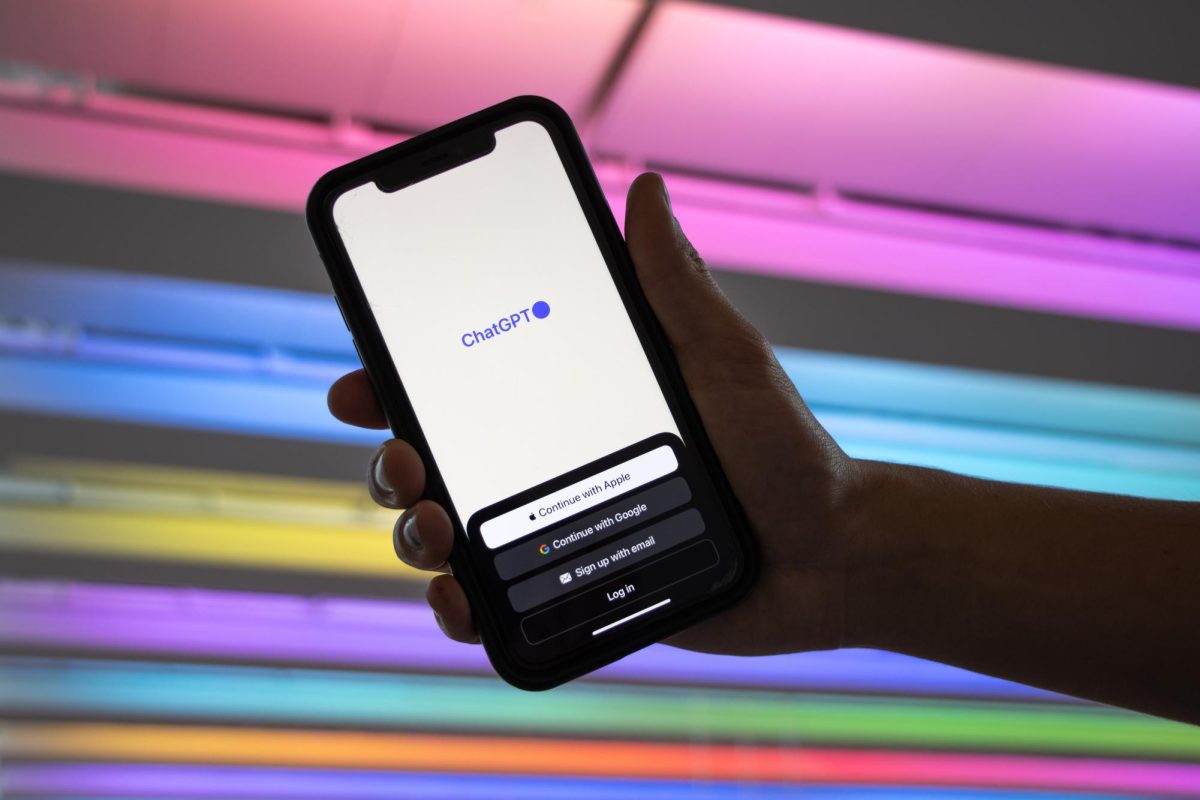
It’s not breaking news that artificial intelligence is a trending buzz of this year. Computer systems performing human tasks allow for countless possibilities, such as virtual assistants, chatbots, fact and spell checking, image generation, algorithmic technology and more. But as technology evolves and NKU rises to meet these new educational thresholds, AI will affect more than a student’s present learning. It will affect their future careers.
AI technology is a type of “software that tries to mimic human intelligence,” which relies on data sets for knowledge, according to Dr. Nicholas Caporusso, assistant professor of computer science.
AI’s impending impact on future careers for students could drastically change not only how work is done in some fields, but also the jobs and fields themselves. “AI will open up novel employment avenues in domains such as data science and AI development, as well as unforeseen roles,” said Dr. Hassan HassabElnaby, dean and professor of accounting at the Haile College of Business.
“I anticipate a transformative role in navigating radical global changes, mitigating ambiguity and enhancing predictive capabilities. AI’s evolution promises improved efficiency, innovative solutions and strategic planning amidst uncertainty,” said HassabElnaby.

Utilizing AI in future businesses will reduce costs of labor, encourage collaboration, prioritize critical thinking and decision-making as well as help users in “streamlining tasks, enhancing efficiency across various domains and enabling innovation,” said HassabElnaby. AI also provides the potential to help with operation optimization, decision-making enhancement, learning customization and routine-task automation along with many other potential roles in business and careers, said HassabElnaby.
“Starting now, AI will be a part of almost every career. In most cases, it will be used to assist in the creation of something and save dozens to hundreds of hours of work. In some cases, it will replace repetitive tasks,” said Chip Heath, director of online learning for the Haile College of Business. “I hope that AI becomes a tool that humans can use to help solve the massive political, ecological and social problems that we face today.”
“Technology does not govern itself,” Caporusso said. “But starting to get familiar with this technology is going to be crucial for everybody,” as AI will impact society in future careers and job markets. Future applications of this technology could impact design systems, research on disease cures, domain experts and act as conversational agents. “New discoveries are made constantly, new systems are being developed daily and it’s really hard to predict the extent of what we are going to see,” commented Caporusso.
“We’re just at the beginning of this wave,” said Caporusso. “Trying especially at the beginning of the wave, while it is still growing, understand how it works and try to surf it.” Exploration of AI technology is vital to understanding the new wave of career focus and resource efficiency the technology provides. The assistant professor hopes to see AI being leveraged to improve society, increase human potential and benefit human life, but he warns against over-delegation as it could deplete the importance of human intelligence and devalue productivity.
“It can reduce the number of repetitive tasks that you need to complete on a daily basis and help you to be more efficient,” Heath said. Learning to use AI as a tool in an ethical and knowledgeable manner is essential in utilizing this technology to become more productive in helping student success in the future job market, he said.
Precautions that should be taken when using AI technology include recognizing bias, critically evaluating results, ethically considering use, being aware of privacy boundaries and evaluating attribution concerns, according to HassabElnaby.
“I wouldn’t listen too much about the doom and gloom for AI,” said Evan Downing, lead NKU IT client support specialist. “I am more excited than I am afraid. I think once we get over some of the rough bumps and the early growing pains, I think that this will actually improve things quite a bit.”
Downing sees AI providing directional refinement and changes in workflow as the technology advances, although uncertain career outlooks may impact how people feel about the technology. He attributes some of AI’s disruptive aspects partly to the lack of global best-practices outlined for the technology.
As technology advances and information becomes more readily available, “it is important to distinguish that there’s a difference between knowledge and expertise,” said Downing. Artificial intelligence is not going away, so learning and using AI applications to enhance work and increase productivity will allow users to grasp a “basic understanding of how it works and how to iterate on their prompts to get the result they want,” said Downing.
“It’s not there to replace your human thought and your personality, that needs to be clear,” said Zachary Strobl, director of the Center for Innovation & Entrepreneurship. Instead, he recommended that students utilize it to their advantage and “treat it like a tool.”

